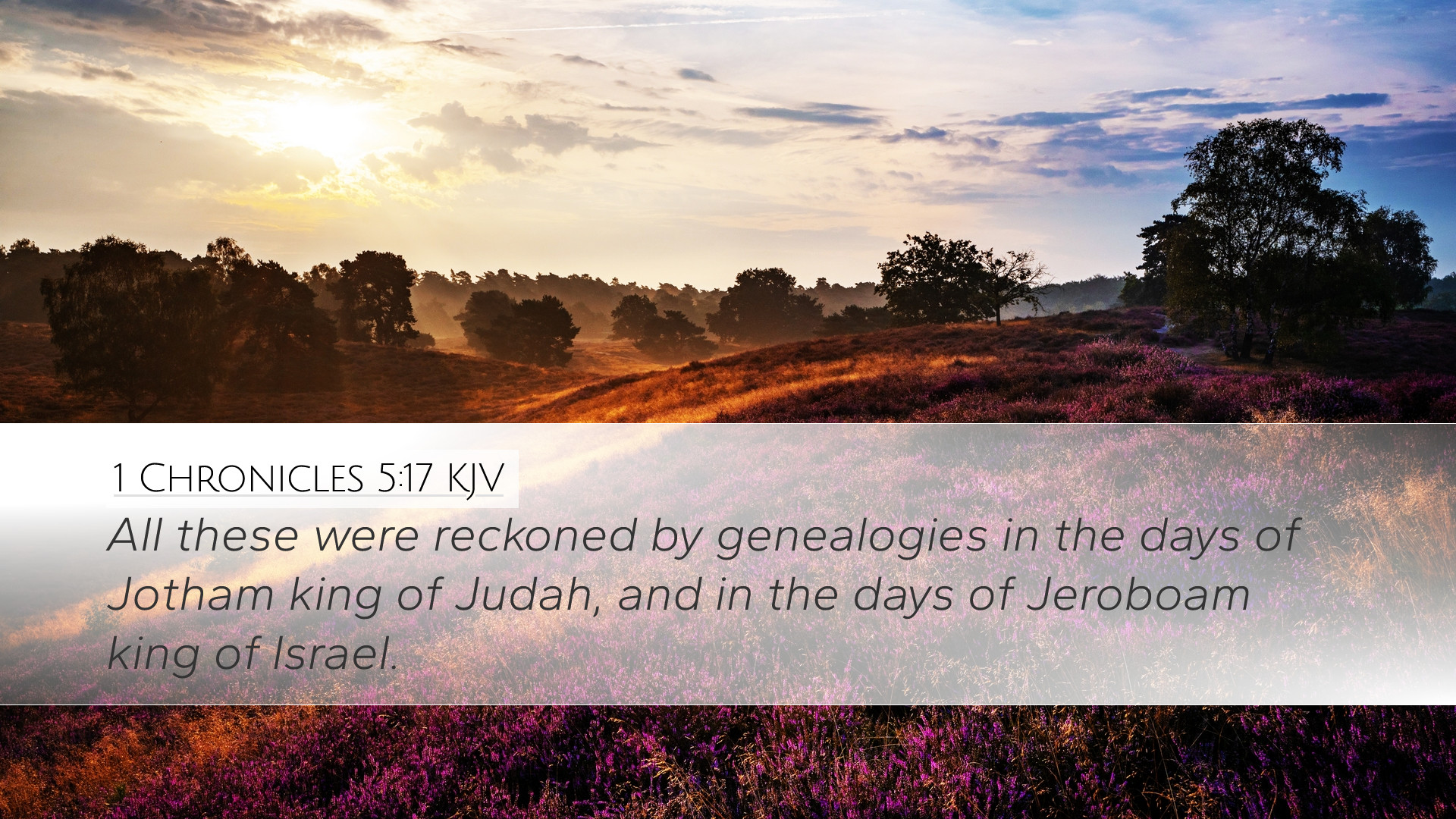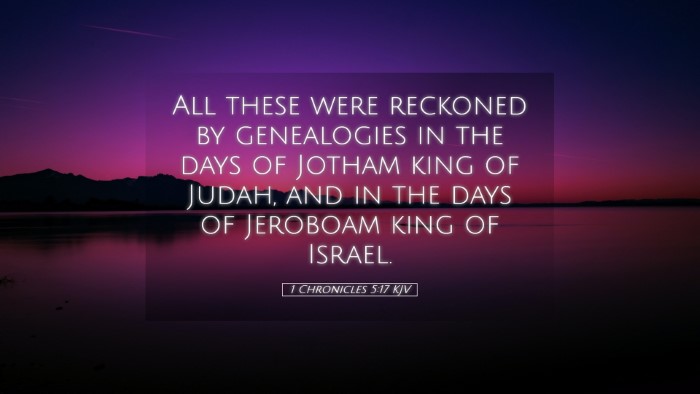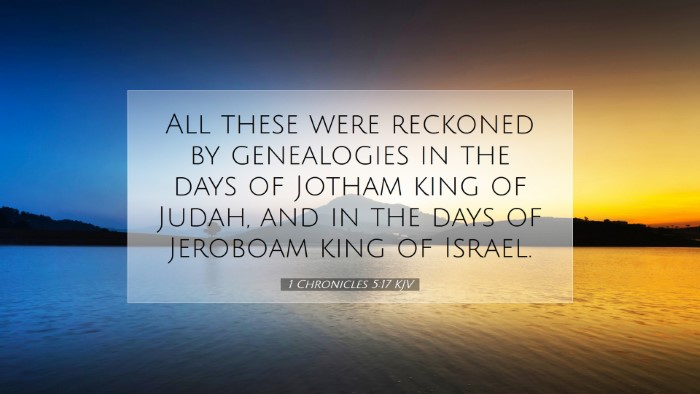Commentary on 1 Chronicles 5:17
Verse: 1 Chronicles 5:17 - "All these were recorded by genealogy in the days of Jotham king of Judah, and in the days of Jeroboam king of Israel."
Introduction
This verse sits within a genealogical context, presenting the tribes of Reuben, Gad, and the half-tribe of Manasseh. It is pivotal to observe that the chronicler emphasizes historical continuity and the importance of genealogy in the establishment of Israel’s identity and lineage.
Genealogical Significance
Genealogies in the Bible frequently serve not only as lists of names but as indications of God’s ongoing covenant with chosen people. The chronicler records these lineages during the reigns of Jotham of Judah and Jeroboam of Israel, suggesting a period of relative stability.
- Matthew Henry's Commentary: Highlights the significance of genealogies in asserting the rights of individuals and tribes to their inheritance in Israel. The recording during the reigns of two kings illustrates a crucial point in Jewish history.
- Albert Barnes' Notes: Emphasizes the necessity of such records for the Israelites to identify their heritage, which was of utmost importance for temple service and social structure. This lineage ensures that the promises made to Abraham, Isaac, and Jacob continue through their descendants.
- Adam Clarke's Commentary: Notes that the mention of two kings additionally frames this genealogy within a political context, where the divided kingdoms of Judah and Israel are acknowledged. It highlights the nuanced relationships between these factions during varying historical epochs.
Historical Context
The reigns of Jotham and Jeroboam were marked by significant events in Israel's history. Jotham, the son of Uzziah, represents a period of relative prosperity and stability in Judah, while Jeroboam II in Israel experienced national expansion and material wealth. This duality indicates that while genealogical records were established, so too were the undercurrents of tension and division that would soon lead to further strife within Israel.
- Matthew Henry: Observes that the official recording of these genealogies signifies an organized structure of society, where each person's lineage holds importance in the religious and civil spheres.
- Barnes: Points out the political significance of these two administrations, showing how the historical recording intertwines with national identity and cohesion amid division.
- Clarke: Reflects on how the mention of specific kings provides a timeline for the genealogical information presented, aiding scholars and theologians in understanding the socio-political landscape of ancient Israel.
Theological Implications
Genealogy in Scripture is not merely an exercise in historical record-keeping; it serves profound theological purposes. It exemplifies God's faithfulness to His promises across generations. This verse encapsulates the enduring nature of God’s covenant, affirming that the blessings given to past patriarchs continue to manifest in future generations.
- Covenant Theology: Emphasizes the continuity of God's promises, seen in Israel's lineage. Each name listed is a testament to the faithfulness of God despite the eventual hardships faced by the nation.
- The Role of Memory: Such records remind the people of their identity and their unique relationship with God. It encourages the community to remain faithful to the divine covenant even in times of division and uncertainty.
- Responsibility of Inheritance: Reflects on the notion that each generation bears the weight of its ancestors' faith. The legacy of faithfulness can compel individuals towards righteous living, honoring their lineage.
Conclusion
1 Chronicles 5:17 serves as a crucial passage that underscores the importance of genealogical records in demonstrating divine faithfulness and national identity. By bridging the past with contemporary faith practices, it compels believers to recognize their place within God’s redemptive plan, drawing upon the communion of saints throughout history. Scholars and pastors alike can glean from these insights the importance of honoring one's heritage while living in the present light of God’s promises.
This verse, coupled with the commentaries of Henry, Barnes, and Clarke, invites deep reflection on how the past influences the present spiritual landscape, urging contemporary believers to live in accordance with their rich heritage of faith.


